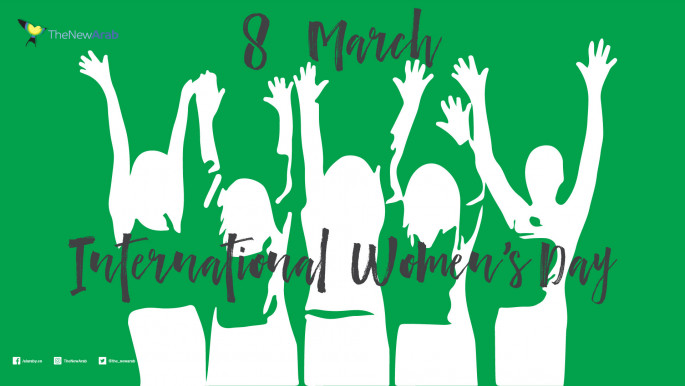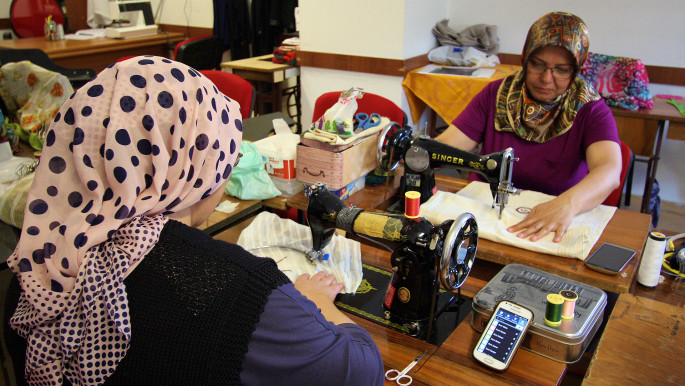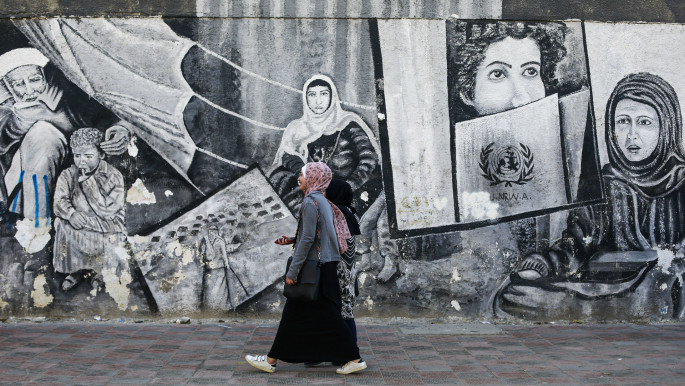 |
|
Empowering marginalised women one at a time in Malaysia
Dahlia and Faris, a married couple from Gaza, came to Malaysia out of compulsion. As bombs rained down around them during the wars of 2008 and 2014, Faris's hand was forced. He had to leave his wife and four children behind as he travelled through the underground tunnels to Egypt and on to Kuala Lumpur, Malaysia, in search of a way to support his family.
Dahlia lived out the war with the children until the borders reopened in 2015, and she sold their belongings to take the arduous journey to join Faris, away from the bombs but in strife nonetheless.
Despite their professional credentials – Dahlia, an accountant, and Faris, an engineer – neither were allowed to work. Faris resorted to selling shawarma wraps in the capital, and Dahlia eventually met three women with a business who were "charmed by her amazing character and delicious cooking."
Dahlia not only joined forces with the women to become a chef in their catering enterprise, PichaEats, but her story is also central to the business's mission of refugees, all of whom are women, making the food it sells.
Dahlia's story features on the company's blog, accompanied by the definition of the word "grit," the spirit of which, it says, Dalia encompasses.
"We get to tell the stories of the chef in a positive light, where despite having to leave their home, they are bringing a piece of hope here through their food," explains Suzanne Ling, one of organisation's founders.
 |
We get to tell the stories of the chef in a positive light, where despite having to leave their home, they are bringing a piece of hope here through their food |  |
There are at least 178,580 refugees and asylum-seekers in Malaysia, according to UNHCR registration numbers as of the end of December 2019.
Roughly two-thirds are from Myanmar but there are around 24,810 refugees and asylum-seekers from Somalia, Syria, Palestine, Iraq and various other countries.
Despite the large numbers, Malaysia is not a signatory to the 1951 UN Refugee Convention and is an environment with few safety nets for the displaced.
Malaysian law dictates refugees and asylum-seekers cannot legally work or go to school. While former prime minister Mahathir Mohamad's administration had promised reform, recent political turmoil may leave those plans in flux.
Thirty two percent of UN registries are female, some of whom lack the support of male relatives.
 |
32% of UN registries are female, some of whom lack the support of male relatives |  |
Most women are single mothers because their husbands and fathers have died in war, says Ifrah Ibrahim Farah, speaking with regards to the Somali community in Malaysia. Or they have separated from their spouses due to domestic violence, she says.
 |
|
| Read also: It's business time in Turkish housewives' gender equality battle |
Twenty-six-year-old Ibrahim, herself single, yet on her own in Malaysia, said she fled Somalia after facing threats to her security.
"The woman's situation in Malaysia, really it is very difficult," says Ibrahim over the phone.
Some women, however, try and earn some money by baking bread or sewing clothes as a home business. The group also have a bakery that can pay bakers as single traders and they use any leftover money to help the wider needs of the community.
"The war has been going on for so long in Somalia, the community is just so broken that when they finally have some sort of peace, they're just exhausted," says Deborah Henry, founder of the organisations Fugeelah and Fugee School.
The former is a social enterprise that trains and enables young women in the refugee diaspora to make jewellery that helps them earn a wage, learn new skills and helps to fund the school that started around ten years ago, mostly as a response to the needs of the refugee communities from Somalia and Middle Eastern countries.
"[People] just want to be able to take care of their families. To know that they bring value into this world," says Henry.
 |
[People] just want to be able to take care of their families. To know that they bring value into this world |  |
But the organisation had to push the envelope and really innovate to work out how to sustain support to underserved communities when the government has yet to legalise employment.
Fugeelah like the bakery and PichaEats, can't hire refugees or asylum-seekers to make the jewellery but they can buy the goods from them.
Other organisations have entered the space too, like The Lost Towel Project for instance, which sell towels made by female artisans to help sustain Chin women from Myanmar, now in Malaysia.
It's a grey area, not so much a blindspot but a blind eye the government casts.
The reality, says Henry, is refugees do work, "and it's about bringing that into the open and managing it."
 |
|
| Read also: Gaza's women entrepreneurs make it possible to send gifts to residents in the 'open-air prison' |
"There's a lot of unethical stuff going on," says Sasibai Kimis, founder of Earth Heir, a social enterprise that recently got a stamp of approval from the World Fair Trade Organisation for its heritage accessories produced by Malaysian artisans. It also expanded a line made by refugees in Malaysia called Made51.
Kimis said many of the female refugees had husbands whose employers often failed to pay them their monthly salaries and made unscrupulous deductions.
"We knew that there's definitely a need for creating livelihoods for refugees," she says, noting that 99 percent of Earth Heir's artisans are women.
If any business experiences challenges, Henry, Ling and Kimis all found those were compounded by their social missions.
"There was definitely the stigma towards the refugee community," says Ling. "The first response [to PichaEats] was always 'Is the food clean? Why would people buy from refugees?'"
There's also the assumption that social businesses can't produce something of good quality, she says.
"I'm trying to teach our consumers that they're buying a bag that's hand woven," says Kimis, explaining how often many felt goods made by marginalised communities should come with a lower price tag.
"These are heritage and artisanal skills that take years to perfect... This is a piece of art and therefore should be valued as such."
 |
Many of the female refugees had husbands whose employers often failed to pay them their monthly salaries and made unscrupulous deductions |  |
By maintaining high standards for aesthetic and quality goods Kimis explains they can now keep prices at a level to pay the artisans more and enable them to supply wholesale orders.
Both Fugeelah and EarthAir have had global reach with distribution lines in several countries as well as online.
Japanese retailer UNIQLO also collaborated with Fugeelah in 2018. Google and L'Oréal Malaysia have been among PichEats's clients.
Kimis says outside of Malaysia, the refugee narrative is something that people support and that will facilitate the scaling up of Made51. Inside Malaysia, Henry says part of their role is advocacy too and having the conversations that can inspire change.
"I think one question that we always get is that there is [circa] 170,000 refugees in Malaysia and we are only working with 17," says Ling.
Whether by supporting their families in their home countries or supporting their fellow displaced in KL, says Ling, these women are able to help others through their own route to empowerment.
Sophia Akram is a researcher and communications professional with a special interest in human rights particularly across the Middle East.
Follow her on Twitter: @mssophiaakram
Click on the Special Contents tab below to follow our special coverage for International Women's Day 2020:




 Follow the Middle East's top stories in English at The New Arab on Google News
Follow the Middle East's top stories in English at The New Arab on Google News


